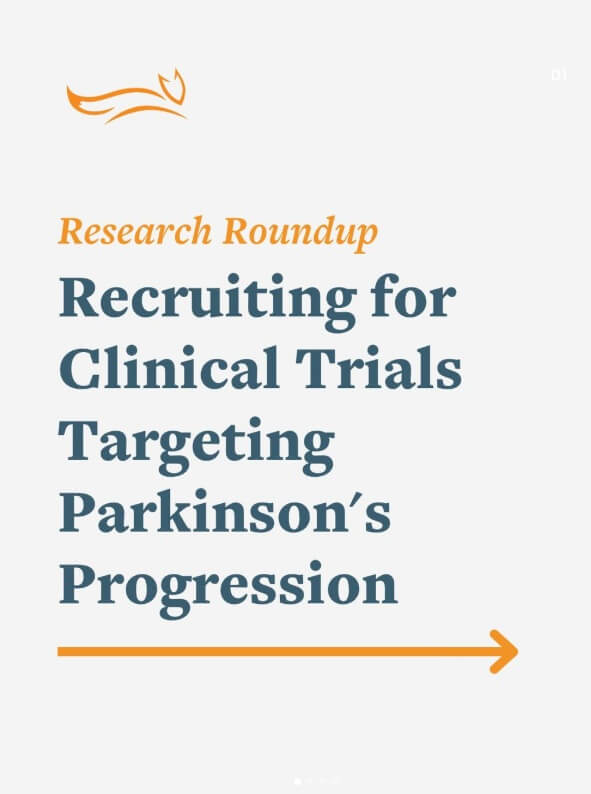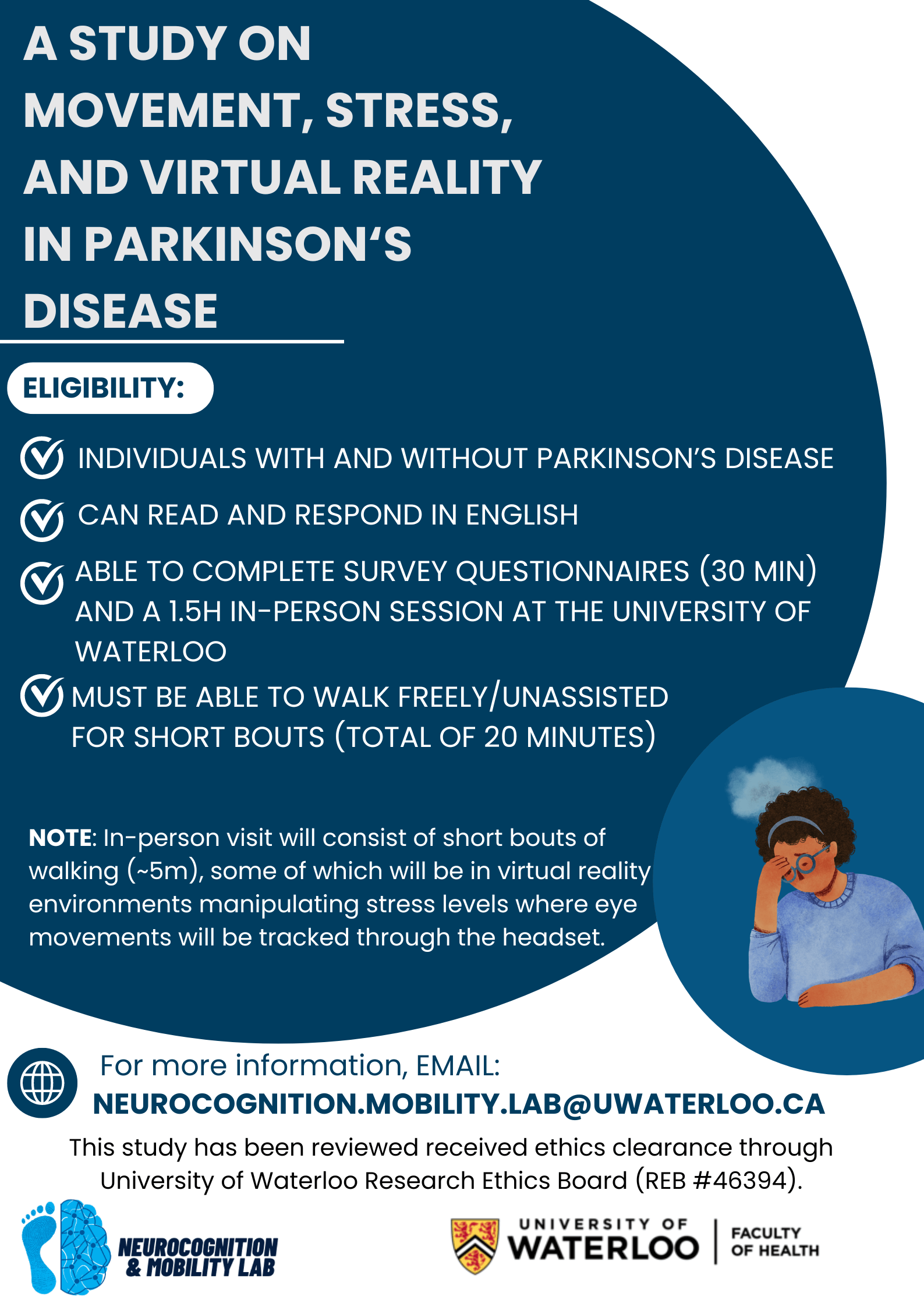Apply to the Latest Research Studies
PD-Anx: Anxiety’s influence on balance and gait in Parkinson’s
Anxiety is one of the most common non-motor symptoms experienced in Parkinson’s and impacts daily living and can intensity PD symptomology and movement performance. It has not been understood specifically how symptoms of anxiety or stress relate to sensory deficits, and whether this may interact with movement behaviour. The proposed research will focus on understanding how changes within the sensory system might contribute to anxiety and interfere with movement control in patients with PD.
This study will be held at the University of Waterloo and will take approximately 3 hours. Participation in this study involves filling out some questionnaires about various aspects of movement and behaviour that may impact day-to-day life. During the study you will
perform some walking tests both in and out of different virtual environments by wearing a virtual reality headset. There is ample opportunity to take breaks. During these walking tasks, we will also measure your heart rate and sweat responses. Therefore, we will need to place some electrodes on your chest and fingers. We will also perform a few tests to assess your balance and your sensory system.
Study-type: in-person – Ontario, Waterloo (parking costs covered)
Time commitment: 3 hours
For more information, email: neurocognition.mobility.lab@uwaterloo.ca

Join Groundbreaking Parkinson’s Research
You don’t need to have Parkinson’s to make a meaningful impact. By taking part in research, you help accelerate scientific breakthroughs, improve treatment options, and move us closer to a cure.
We are proud to support and highlight studies that are advancing Parkinson’s research, including those led by trusted global partners.
Learn more and explore volunteer opportunities through the Parkinson’s Progression Markers Initiative (PPMI) — a landmark study by The Michael J. Fox Foundation designed to understand Parkinson’s like never before and develop better diagnostics, therapies, and prevention strategies.



